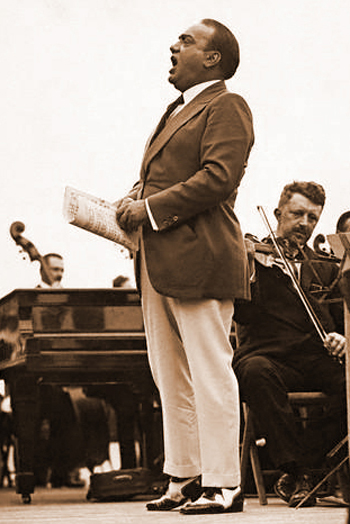Catholic Virtues
 |
 |
 |
 |
 |
 |
 |
True & False Paths to Happiness - XV
Admiring the Superior & the Inferior
Can someone who has never had visions be a contemplative?
Yes, because to be contemplative, it is not necessary to experience mystical phenomena or to stop being a man of action.
Tanquerey's definition, which has already been mentioned, states that "in general, to contemplate is to look at an object with admiration." (cf. Compêndio de Teologia Ascética e Mística, Porto, 1961, part II, chap. 1, item 2)
Our admiration must be constant and multiform. It should encompass a broad range of themes: ambiences, customs and civilizations; the grand panoramas of history; portentous theological, philosophical or sociological questions; movements of public opinion; aspects of the human psychology; great personages and, at the same time, very simple people; works of art and the minutiae of nature.
We are thus led back to the question: How does one go about contemplating the universe?
This can be done in several ways since an image can be appreciated under different lenses. I will describe in this and the following articles some of the "windows" through which the human spirit can contemplate the pinnacles of reality, without having visions.
The first of these is admiration.
An admirable note in everything God made
Admiration - the first stage of sacral contemplation - is the capacity to marvel, and to marvel in a humble and disinterested way.

 We can say that admiration is a very Catholic virtue.
We can say that admiration is a very Catholic virtue.
Why Catholic? It is because the Word of God Incarnate gave us an example of it.
Let us begin by observing that God has put at least one note of admiration in everything He made, without exception.
Consequently, at every moment man can find something to admire. If God placed the admirable in everything, it is because He wanted to instill in man, in all ways and forms, the conviction that his spirit must be turned toward the highest, toward something that raises admiration in him, and that the light of his life is to admire things that are truly admirable.
If all that God has done is admirable, He wants us to live in continuous admiration of the things that He made in order to admire Him, for God is reflected in these things.
Admiration has two degrees. One degree is to admire what the person has in front of him. Another degree is to refer this thing to God Our Lord, in order to place Him at the endpoint of our admiration.
God is the author of that which I am admiring, He not only has that quality in an infinite way, but, more than having that quality, He is it.
Let us imagine a son who does not know his father, but knows that he is a very rich with the fullest personality imaginable. The son is placed under arrest. One day, he receives books in his cell on diverse subjects written by his father. Soon afterwards works of art - paintings and statues - are sent to him that were crafted by hands of genius and he is informed that those pieces were also made by his father. What is the consequence? Admiring these works, he comes to love his father much more and to understand him better.
To admire those above & below us
This is what God has done with us. He created a magnificent universe so that we should admire those above and below us.
The man who has a Catholic spirit tends to look for admirable things in everything and to do admirable things. He is not envious. When he finds someone who is admirable, he rejoices and gives thanks to God for having found that person. He praises and applauds the person and seeks to make his qualities known.
He is not egalitarian; he does not try to put himself on the same level as others, but instead strives to make those who are more than he receive more glory and honor than himself.
But he is not content to admire only those who are superior to him. He also knows how to treat those who are inferior with respect and tenderness, without egalitarianism. He knows how to see a figure of God in the smallest persons and things and give glory to God because God wanted to manifest Himself in them.
 Consider the case of the very famous Italian tenor Enrico Caruso (1873-1921). God gave him a magnificent voice. We should know how to admire this man and be pleased to hear his voice. For, by admiring him, I admire something that brings me closer to God.
Consider the case of the very famous Italian tenor Enrico Caruso (1873-1921). God gave him a magnificent voice. We should know how to admire this man and be pleased to hear his voice. For, by admiring him, I admire something that brings me closer to God.
I know that, even though Caruso is world famous, he would be inferior to many other men for different reasons: One is more logical than Caruso, another is more is more athletic, yet another writes with greater facility, etc. When he sees one of these others, Caruso should admire him, not because he is greater than he is, but because in some point the other has something more than he does. And thus everyone should admire others in the points where they shine.
God himself admires! In admiration He said, "Consider the lilies of the field ... they labor not, neither do they spin." (Mt 6, 25) How much more will He love what man does in an élan of soul... and who turns to Him because, moving from marvel to marvel, at the top is God Himself!
The example of Our Lord admiring things, even the smallest, and loving them with a special tenderness is a lesson that turns a soul readily toward admiration. The admiring gaze of God, the admiring look of Mary Most Holy, rests also upon the mediocre, upon the sordid, and they can begin to take new life, as the waters moved in the Pool of Siloam.
An admiration that descends is symmetrical to the admiration that rises. And in this way the story of admiration closes.
Continued

Yes, because to be contemplative, it is not necessary to experience mystical phenomena or to stop being a man of action.
Tanquerey's definition, which has already been mentioned, states that "in general, to contemplate is to look at an object with admiration." (cf. Compêndio de Teologia Ascética e Mística, Porto, 1961, part II, chap. 1, item 2)
Our admiration must be constant and multiform. It should encompass a broad range of themes: ambiences, customs and civilizations; the grand panoramas of history; portentous theological, philosophical or sociological questions; movements of public opinion; aspects of the human psychology; great personages and, at the same time, very simple people; works of art and the minutiae of nature.
We are thus led back to the question: How does one go about contemplating the universe?
This can be done in several ways since an image can be appreciated under different lenses. I will describe in this and the following articles some of the "windows" through which the human spirit can contemplate the pinnacles of reality, without having visions.
The first of these is admiration.
An admirable note in everything God made
Admiration - the first stage of sacral contemplation - is the capacity to marvel, and to marvel in a humble and disinterested way.

Degrees of admiration: 1. We admire what is in front of us, above; 2. We refer that beauty to God, below, the rose window at Notre Dame Cathedral, Paris

Why Catholic? It is because the Word of God Incarnate gave us an example of it.
Let us begin by observing that God has put at least one note of admiration in everything He made, without exception.
Consequently, at every moment man can find something to admire. If God placed the admirable in everything, it is because He wanted to instill in man, in all ways and forms, the conviction that his spirit must be turned toward the highest, toward something that raises admiration in him, and that the light of his life is to admire things that are truly admirable.
If all that God has done is admirable, He wants us to live in continuous admiration of the things that He made in order to admire Him, for God is reflected in these things.
Admiration has two degrees. One degree is to admire what the person has in front of him. Another degree is to refer this thing to God Our Lord, in order to place Him at the endpoint of our admiration.
God is the author of that which I am admiring, He not only has that quality in an infinite way, but, more than having that quality, He is it.
Let us imagine a son who does not know his father, but knows that he is a very rich with the fullest personality imaginable. The son is placed under arrest. One day, he receives books in his cell on diverse subjects written by his father. Soon afterwards works of art - paintings and statues - are sent to him that were crafted by hands of genius and he is informed that those pieces were also made by his father. What is the consequence? Admiring these works, he comes to love his father much more and to understand him better.
To admire those above & below us
This is what God has done with us. He created a magnificent universe so that we should admire those above and below us.
The man who has a Catholic spirit tends to look for admirable things in everything and to do admirable things. He is not envious. When he finds someone who is admirable, he rejoices and gives thanks to God for having found that person. He praises and applauds the person and seeks to make his qualities known.
He is not egalitarian; he does not try to put himself on the same level as others, but instead strives to make those who are more than he receive more glory and honor than himself.
But he is not content to admire only those who are superior to him. He also knows how to treat those who are inferior with respect and tenderness, without egalitarianism. He knows how to see a figure of God in the smallest persons and things and give glory to God because God wanted to manifest Himself in them.

Enrico Caruso, the great opera singer at the beginning of the 20th century
I know that, even though Caruso is world famous, he would be inferior to many other men for different reasons: One is more logical than Caruso, another is more is more athletic, yet another writes with greater facility, etc. When he sees one of these others, Caruso should admire him, not because he is greater than he is, but because in some point the other has something more than he does. And thus everyone should admire others in the points where they shine.
God himself admires! In admiration He said, "Consider the lilies of the field ... they labor not, neither do they spin." (Mt 6, 25) How much more will He love what man does in an élan of soul... and who turns to Him because, moving from marvel to marvel, at the top is God Himself!
The example of Our Lord admiring things, even the smallest, and loving them with a special tenderness is a lesson that turns a soul readily toward admiration. The admiring gaze of God, the admiring look of Mary Most Holy, rests also upon the mediocre, upon the sordid, and they can begin to take new life, as the waters moved in the Pool of Siloam.
An admiration that descends is symmetrical to the admiration that rises. And in this way the story of admiration closes.
Continued

Posted August 12, 2020





